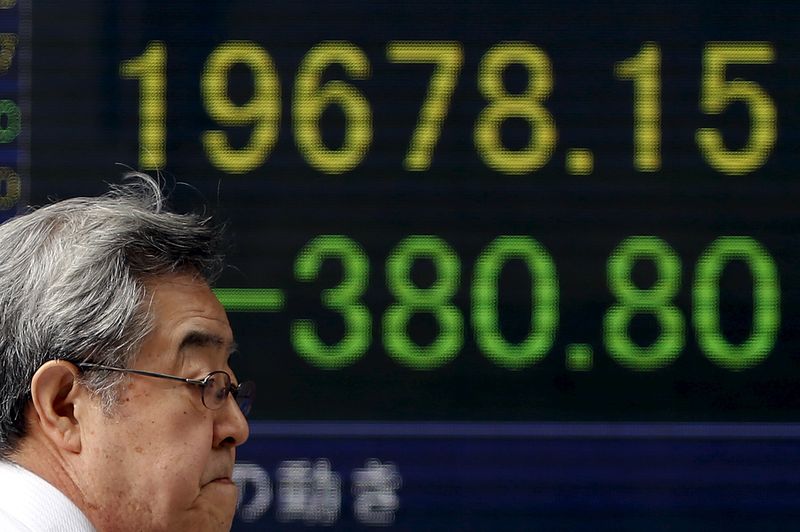This post was originally published on this site
https://i-invdn-com.akamaized.net/news/LYNXMPEB4C07I_M.jpg
Investing.com – Asian stocks were down on Thursday morning, with U.S.-China tensions hitting a fresh low and decreasing investor risk appetite.
The U.S. ordered the closure of China’s consulate in Houston on Wednesday a move “to protect American intellectual property and Americans’ private information.”
The closure is the latest event increasing tensions between the two countries during this year. Investors are now looking to China’s reaction, with China condemning the closure and reportedly considering a retaliatory closure of the U.S. consulate in Wuhan.
Some investors warn that the tensions will continue to worsen between the two countries over other issues such as trade and Hong Kong’s national security law.
“The escalation in U.S.-China tensions is a reminder of the headline risk faced by investors during the upcoming U.S. election campaign,” Stephen Innes, chief global market strategist at AxiCorp, told Bloomberg.
“The U.S. and China have become increasingly combative in their views this year. The markets better get used to it because there is more of that to come.”
China’s Shanghai Composite slid 2.17% by 11 PM ET (4 AM GMT), and the Shenzhen Component fell 1.57%.
South Korea’s KOSPI was down 1.04% and Down Under, the ASX 200 fell 0.16%.
Hong Kong’s Hang Seng Index was down 0.08%, with the city reporting 113 cases, its highest daily number yet, on Wednesday.
Japanese markets are closed for a holiday.
Meanwhile, investor sentiment was boosted after Pfizer (NYSE:PFE) said that the government ordered up to 600 million doses of its COVID-19 vaccine candidate. Three other candidates reported positive results in early stage human clinical trials earlier in the week. But COVID-19 continues its global rampage, with over 15.1 million cases as of July 23, according to Johns Hopkins University data.
Investors are also keeping an eye on the U.S. Congress’ negotiations over fresh stimulus measures for the economy, with some earlier measures due to expire at the end of July.

